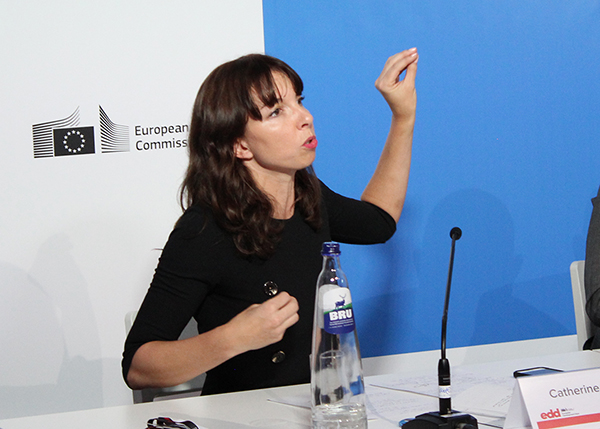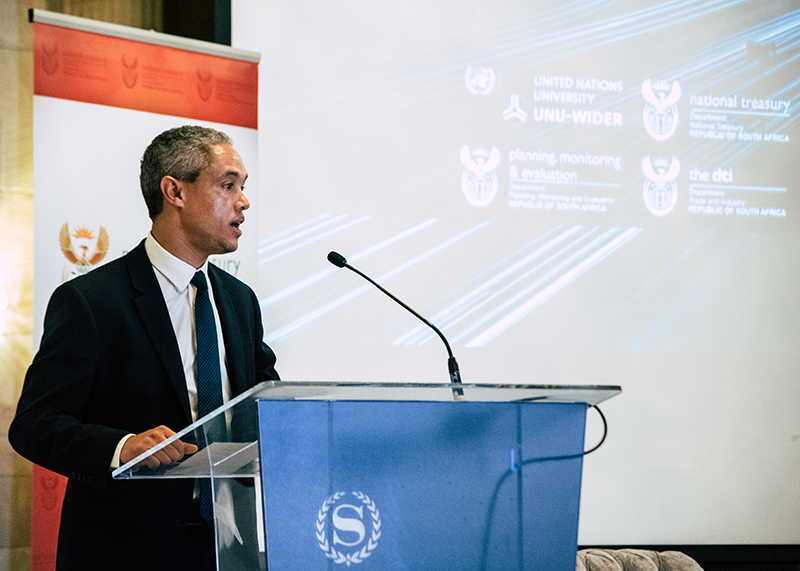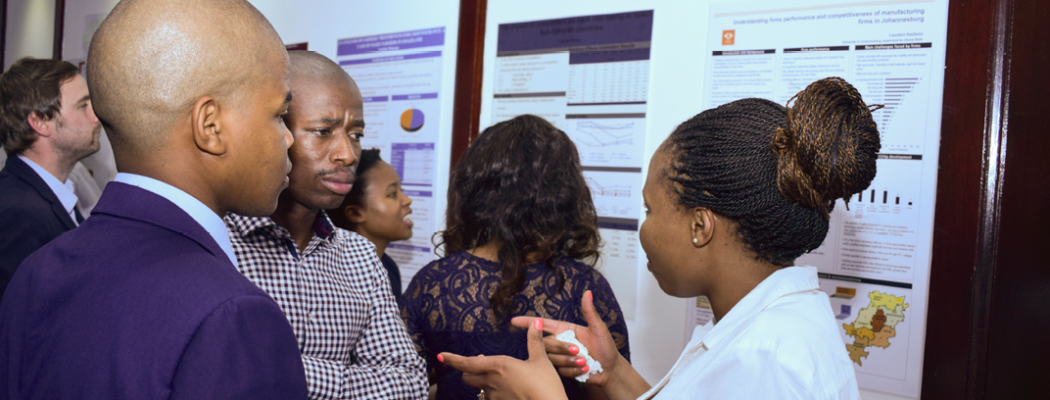Data for Development — Building an economy of inclusion in South Africa
As the largest economy in sub-Saharan Africa, South Africa’s successes and failures spill over into the broader region. Today, as South Africans face high unemployment and a sluggish economy, policymakers are wrestling to create success through solutions that will quell rising public debt, overcome persistent inequality, and stimulate regional economic integration.
But a deficit of data that can inform whole–system answers threatens to impede policies that lead to inclusive growth — an economic pillar of achieving the Sustainable Development Goals (SDGs) in Africa.
In 2018, the UNU World Institute for Development Economics Research (UNU-WIDER) initiated targeted research to fill this data gap through the project Southern Africa — Towards Inclusive Economic Development (SA-TIED).
A collaboration between the South African government, the International Food Policy Research Institute, UNU-WIDER, and other international and local research institutes, the project was launched to investigate paths toward more inclusive growth and to guide policy innovations to tackle some of the most pressing and ongoing challenges in South Africa.
By bringing together staff from South African ministries and Southern African and international research institutes, the goal is to develop capacities for data management and research on all sides of the policymaking and research interface.
A shared investment in policy research
SA-TIED was conceived with the intention of syncing research advancement with the contemporary needs of local policymakers. To that end, the research agenda has been co–created with officials in the South African Economic Sectors, Employment, and Infrastructure Development Cluster, whose work is central to overcoming some of the core challenges in the South African economy.
To date, more than two-thirds of SA-TIED research papers have included Southern African authors, many of them from the South African Department of Trade and Industry, the National Treasury, and the South African Revenue Service (SARS).
Catherine Macleod, of the National Treasury, points to this shared investment as 'one of the keys to success' of the project: 'We’ve had SARS, the National Treasury, and other interested government departments really involved in setting up the architecture of how this project would work.'

As UNU-WIDER’s biggest collaboration to date, the project will result in more than 150 research papers on a range of policy-relevant topics. It will improve and develop datasets and economic models upon which to build future research. And it will finance PhD studies for technical government staff and contribute to expansion of the skills and abilities of economic policymakers in the region.
But the overall goal is to get the latest research into the hands of the policymakers who need it.
Bringing new insights to economic development
Much of this work is about building an economy of inclusion that creates jobs for a broader swath of the population, and a tax system that can meet the revenue needs of the state while also addressing persistent inequalities.
For example, SA-TIED research is analysing the factors that contribute to growth of firms and employment creation, and is looking at public revenue and the efficiency of South Africa’s tax and social transfer system.
According to Duncan Pieterse, Acting Deputy Director General of South Africa’s National Treasury, 'ultimately it’s about the policies, and how they impact the lives of ordinary South Africans in a way that can meaningfully contribute to growth in the future. If you don’t have good data, you can’t answer any of these questions'.
'Not all households have family members that can work, which makes building social safety nets vital. But to finance social programmes, tax revenue becomes important. This is why I am building tax-benefit microsimulation models, which are tailor-made tools to examine the impacts of expanding social protection in developing countries.' Jukka Pirttilä, UNU-WIDER Non-resident Senior Research Fellow
Much of the project relies on researchers having access to wide-ranging and granular data on firms and households that, until recently, have been inaccessible and kept under protection of confidentiality. But as a result of the collaboration between UNU-WIDER, SARS, and the National Treasury, South Africa has joined a handful of countries globally (and is the only African country) that have secured and anonymised their tax data for researchers to use.
This is opening doors to a vault of historical knowledge that Pieterse says will allow the project 'to evaluate government policy, to look back in time and understand what has been the impact of government policy', and 'to ask "how can one redesign those programmes going forward to make better use of these resources?"'.
This will pave the way for policy innovation, more accurate answers to tough policy questions, and focused solutions.

Policy for prosperity
Sixty-five of the 150 papers planned have been published, and already the research is having an impact in South Africa.
Two SA-TIED papers made headlines in December 2018 after being the subject of a Financial Mail weekly exclusive. Around seven billion rand (about US$500 million) in public finances is lost to tax havens every year in South Africa, and these papers were some of the first to use the newly available data to examine the impact that international tax havens have on the revenue collection of developing countries.
Researchers believe that by upgrading the data analysis capacity of the tax authority and focusing on the largest firms, South Africa can rein in most of the one billion rand (about US$70 million) lost through the mispricing of imports. This is revenue that can help balance South Africa’s budget and sustain government spending.
As South Africa looks to get on a sustainable track towards a more robust and inclusive economy, SA-TIED is also looking for ways to increase South Africa’s role in regional trade and economic integration. John Page, UNU-WIDER Senior Research Fellow for SA-TIED’s work on regional development, explains that, 'to the extent that we can help to design policies that allow South Africa to get greater prosperity spread throughout the region, that benefits everybody'.
It is this outlook that makes the SA-TIED partnership a driving force for the SDGs in sub–Saharan Africa. As UN Deputy Secretary-General Amina Mohammed highlighted in Johannesburg in December, 'Africa can lead the world in implementing the SDGs… Achieving the Goals by 2030 is a big task, but it is also an opportunity for ground–breaking and innovative partnerships that leverage the resources and talents of everyone, everywhere'.
Through its unique research partnerships, Southern Africa — Towards Inclusive Economic Development is building a data foundation for economic innovation that can overcome domestic barriers and help achieve sustainable development throughout Southern Africa.
This article is republished from Our World under a Creative Commons license. Read the original article.
The United Nations University (UNU) takes an interdisciplinary, cross-cutting approach to research on pressing global problems. UNU generates knowledge to support an evidence-based rethinking of policies by providing decision-makers with fresh perspectives on the most urgent policy issues, proactive analyses of emerging concerns, and sound policy alternatives.
To better highlight UNU’s people, approach, and products, the UNU 2018 Annual Report includes feature articles that provide an example of UNU’s work on three selected topics: the following feature on inclusive economic development, and features on gender digital equality and wastewater management.





